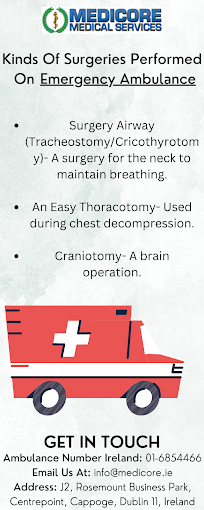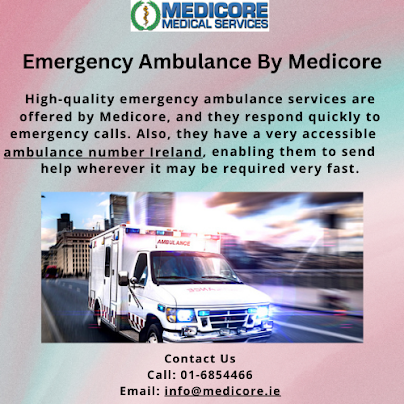The Importance of Public Education on When to Call an Emergency Ambulance
Emergency ambulance service plays a crucial role in providing immediate medical assistance to those who require it. Timely access to these services can be the difference between life and death. However, many people are unsure about when to call for an ambulance and often delay or hesitate, which can have serious consequences. That's why it's essential to educate the public on when to call for an ambulance.
One of the most critical factors in deciding whether to call for an ambulance is the severity of the medical condition. It's essential to recognize the signs of a medical emergency and act accordingly. For instance, if you or someone around you is experiencing severe chest pain, shortness of breath, sudden and severe headache, or loss of consciousness, you should immediately call for an ambulance. These symptoms can indicate life-threatening conditions such as heart attack or stroke and require immediate medical attention.
Another essential consideration is the potential risk of delaying medical intervention. In some cases, even a few minutes can make a significant difference in a patient's outcome. For instance, if someone is experiencing severe bleeding or has sustained a head injury, delaying medical attention can lead to irreversible brain damage or death. It's crucial to err on the side of caution and call for an ambulance when in doubt.
Furthermore, it's crucial to understand that ambulance services are not just for transporting patients to the hospital. Ambulance crews are trained to provide emergency medical care on-site and can administer life-saving interventions such as CPR, defibrillation, and administering medications. Therefore, even if you or someone around you is not experiencing severe symptoms, it's better to call for an ambulance if you suspect a medical emergency.
It's also essential to educate the public on what information to provide when calling for an emergency ambulance. Accurate and detailed information can help emergency services prepare for the situation and provide the appropriate medical assistance. When calling for an ambulance, provide the following information:
- The exact location of the incident
- The patient's age and gender
- The patient's symptoms and condition
- Any known medical conditions or allergies
- Any medication the patient is currently taking



.jpg)

Comments
Post a Comment